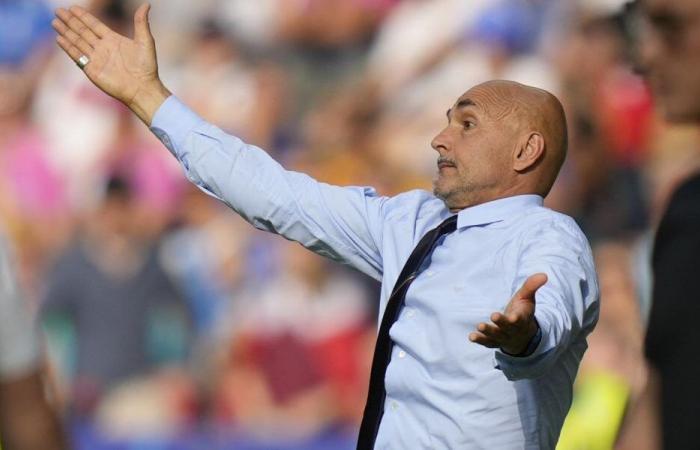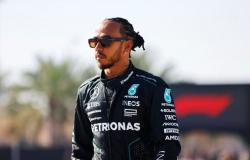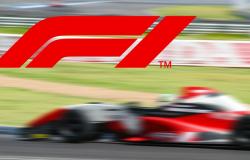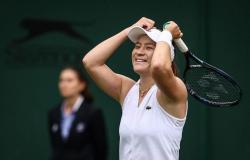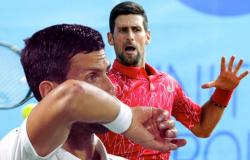Yesterday, one of the darkest pages in the history of Italian football was written. With the exception of 2021, we are writing this sentence with such frequency that it has unfortunately become a sad habit. However, we do not want to sell you false hopes or illusions: the future that awaits us is even worse than a disconcerting present.
Will anything change? We give you an answer with another question: has something changed after the two failures to qualify for the 2018 and 2022 World Cups? There, you answered yourselves. And this time too it will go the same way. There will be a bit of fuss for 2-3 days, then everyone will forget about the national team, the attention will be shifted to the transfer market, with the local clubs who, attracted by alleged deals with increasingly empty wallets, will enrich the team’s collection of foreigners Serie A. On the other hand, how can we hope for a change, when a technical commissioner, faced with an epochal disaster, not only is unable to say “I made a mistake”, not only does he not hand in his necessary resignation, but he even wants to underline who doesn’t even think about leaving? And the same goes for the federal president. Personal interests come first, no one cares about the nation anymore. For a long time.
Italy, in a major competition (European or World Cup), if we exclude the group stages and finals, had not lost a match in the 90 minutes of regulation between the round of 16 and the semi-final for 38 years, when Platini’s France imposed a clear 2 on us -0 in the 1986 Mexico round of 16. Since then either we have won (2006 and 2021) or we have been eliminated in the group stage or we have lost the finals (1994, 2000 and 2012) or it has been penalties that have interrupted our progress before the final act (1990, 1998, 2008, 2016). This says a lot about how Italy has historically been a very difficult team to beat in inside or outside matches, often capable of going beyond its limits. All this is a distant memory: what remains after yesterday is a dull team, unpresentable, incapable of fighting, resigned to an inescapable fate. We were a football power, today we are a noble fallen like any other Hungary. The truth hurts, but it cannot be hidden. Spalletti changed formation in every match, sending the players into total confusion. But it’s hard to admit it, it’s much easier to look for the pathetic alibis of the few matches played compared to the predecessors or, even, of the high temperatures…
So where do we start again to try to avoid a third failure to qualify for the 2026 World Cup? The answer is: by no one. There is no immediate solution to the problem. When you are sick, you need treatment to get back to health. But without treatment, the body is destined to worsen permanently, to the point of dying. And this is what is happening to the Italian national team, because no one has the intention of implementing a cure. No one will impose the obligation to field a minimum number of Azzurri in Serie A; no one will truly invest in training players from childhood and in youth sectors, where footballers who come from abroad are increasingly valued. Italians will increasingly become a rare commodity, on the verge of extinction. And the day is not far off when coaches will have to start fishing from Serie B in order to build a squad. The former coach Mancini had understood the problem, with an increasingly limited pool from which to fish; to expand it he had decided to resort to oriundi, going to search for prospects with Italian ancestors around the world. If the result is having enlisted Retegui, then it is clear that even that was not the right solution.
Italy has not qualified for the Olympics since 2008, nor for the World Cup since 2014. By now all our team sports qualify for the world championships, even handball has succeeded; but not football. The unexpected victory of the 2021 European Championships had made us feel stronger than we actually were: it was a miracle which had the side effect of camouflaging the endemic problems that we have been carrying with us for almost twenty years now.
Who does it start from? These are the players called up for the final qualifiers for the 2025 U21 European Championships.
GOALKEEPERS
Sebastiano Desplanches (Palermo)
Filippo Rinaldi (Olbia)
Gioele Zacchi (Giana Erminio)
DEFENDERS
Richard Calafiori (Bologna)
Diego Coppola (Hellas Verona)
Daniel Ghilardi (Sampdoria)
Michael Olabode Kayode (Fiorentina)
Lorenzo Pirola (Salernitana)
Matteo Ruggeri (Atalanta)
Riccardo Turicchia (Juventus)
Mattia Zanotti (St. Gallen)
MIDFIELDERS
Alessandro Bianco (Reggiana)
Edward Bove (Rome)
Cesar Casadei (Chelsea)
Giovanni Fabbian (Bologna)
James Fazzini (Empoli)
Luis Hasa (Juventus)
Fabio Miretti (Juventus)
Dear Ndour (Braga)
Matthew Prati (Cagliari)
Franco Tongya (Larnaca River)
Cristian Volpato (Sassuolo)
ATTACKERS
Giuseppe Ambrosino (Catanzaro)
Thomas Baldanzi (Rome)
Lorenzo Colombo (Monza)
Francesco Pio Esposito (Spezia)
Wilfried Gnonto (Leeds)
Gaetano Pio Oristanio (Cagliari)
This list, friends of OA Sport, is emblematic of our current situation. Of these, only Calafiori was of a truly high level, it is no coincidence that he was called up for the European Championships. Of all the others, to date, none is worthy of a call up to the senior national team, except perhaps Ruggeri from Atalanta. Where are the spare parts? They don’t exist…Kayode, after a glimpse of the season as a starter at Fiorentina, was immediately shelved. Ghilardi is interesting, but he plays in Serie B; Pirola and Coppola have highlighted important limitations; Fabbian showed good things in Bologna, but often as a substitute; Miretti never blossomed, just like Bove, Ndour remains a mysterious object; Prati had earned Ranieri’s trust in Cagliari, only to be demoted after a few months to fixed reserve; Tongya plays in the Cypriot league; and what about Casadei, top scorer of the U20 World Cup in 2023 and then completely disappeared from the radar, after ending up in the depths of the English Serie B? The attack then is thrilling, with Colombo who scores slowly, Gnonto who has never found his dimension, Baldanzi who has technique, but perhaps not the physique to play at certain levels. The announced ‘phenomenon’ Pafundi had to emigrate to Switzerland: there was no place for him here. Coming from behind is a young striker who gives us hope like Camarda. He is 16 years old: at Barcelona he would probably be a starter, at Milan we fear that he could become cobwebs on the bench or have little formative experience in the B team that will play in Serie C. Gentlemen, this goes beyond the convent. And don’t get your hopes up when you read about the Italian victories at the U19 and U17 European Championships: of those players, and history tells it, certainly not OA Sport, only a negligible percentage end up playing permanently in Serie A.. Nothing will change, let’s resign ourselves to living on memories. Because the Italian football we knew no longer exists.

